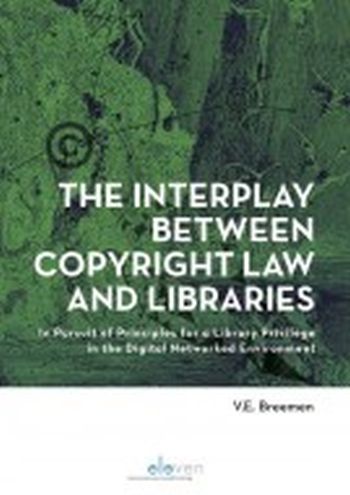
Technological developments have impacted both libraries and copyright law for decades, though not at the same pace. Whereas libraries are increasingly unlocking their collections digitally, copyright law still seems to adhere to a traditional perception of brick-and-mortar libraries. Consequently, the question arises whether copyright law, as a system of exclusive rights and exceptions, offers sufficient space for current library practice in an era of information overload.
Therefore, this book sets out to articulate principles for future library exceptions that reflect the evolving library concept beyond physical boundaries. Pursuing interdisciplinary and normative research, the book systematically charts the library's position under US, EU, German and Dutch copyright law. It argues that copyright law should flexibly reconcile right holder interests in protection and compensation with fundamental library and user interests in access to information. Uniquely positioned at the intersection of copyright law and library and information sciences, the thorough research offers an in-depth understanding of the intensified tension between protection of and access to cultural and intellectual works. As such, it makes an important contribution to the debates on a 21st century copyright law.
This book will be of great value to both scholars and professionals in the fields of intellectual property law and library and information sciences.